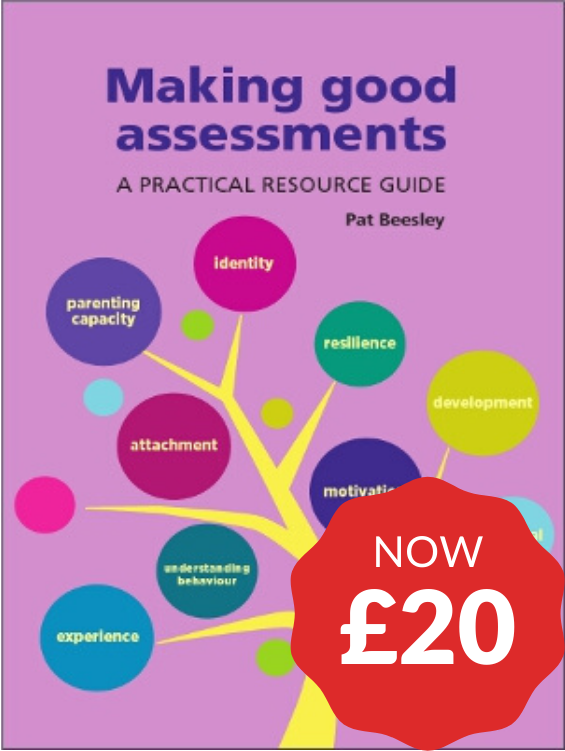
Making good assessments
A practical resource guide
£29.95
£20.00
SPECIAL OFFER PRICE - NOW £20!
Preparing and assessing potential adopters and permanent foster carers is key to a successful placement. But what makes a good assessment? What are the critical areas to cover? How can practitioners ensure that the assessment process is an enabling and rewarding experience for applicants?
This practical resource guide explains the theory and practice of assessment in fostering and adoption. It also helps agencies develop their own assessment programme. With its creative and imaginative format, it can be used flexibly within group settings, individual or family discussions.
The guide provides knowledge and understanding to underpin assessments, enabling social workers to approach them with greater confidence. It ensures that they address key areas, embrace a holistic approach, and attain high standards. It provides a broad-based foundation which can be built on for ongoing work. Useful introductions, articles and excepts from experts are paired with imaginative exercises to use with applicants and children. The guide also contains useful case scenarios and a comprehensive bibliography.
This guide is for adoption and fostering workers, panel members, decision makers, and those responsible for making successful placements for children.
Read our free chapter
Every month we release a free chapter from one of our bestselling publications. For September 2025, we are sharing the contents pages and Module 7 from our Making Good Assessments practical resources guide. Read about ‘Involving children of the family in the assessment
Did you know that discussing a CoramBAAF publication with a colleague counts towards your CPD?
Read the contents page
STARTER PACKS
To help newly qualified social workers, or those that want to refresh their knowledge, we have created starter packs. Get your essential fostering or adoption title today for a discounted price!
AVAILABLE IN EBOOK AND HARD COPY
Questions about eBooks? Check out our FAQs.
A 10% bulk discount will be applied at the checkout for orders of 10 copies or more on this title.
HARD COPY
Reviews
The chapters, modules and tasks are clearly structured and this allows this guide to be accessible to both practitioners and potential carers. The overriding purpose here is to provide applicants with the strategies that are appropriate to maximising their understanding of the assessment process and beyond. It is, therefore, useful for practitioners who need accessible resource for carers. The guide helps to highlight, and resolve, some of the practical tensions that practitioners and carers often face in the assessment process.
Lydia Brown, Social Work Practitioner, Wakefield Metropolitan District Council Practice 26:4
This is a really useful resource as a basis for all core assessments in social work, while focusing on fostering primarily.
Five stars, Amazon.co.uk
